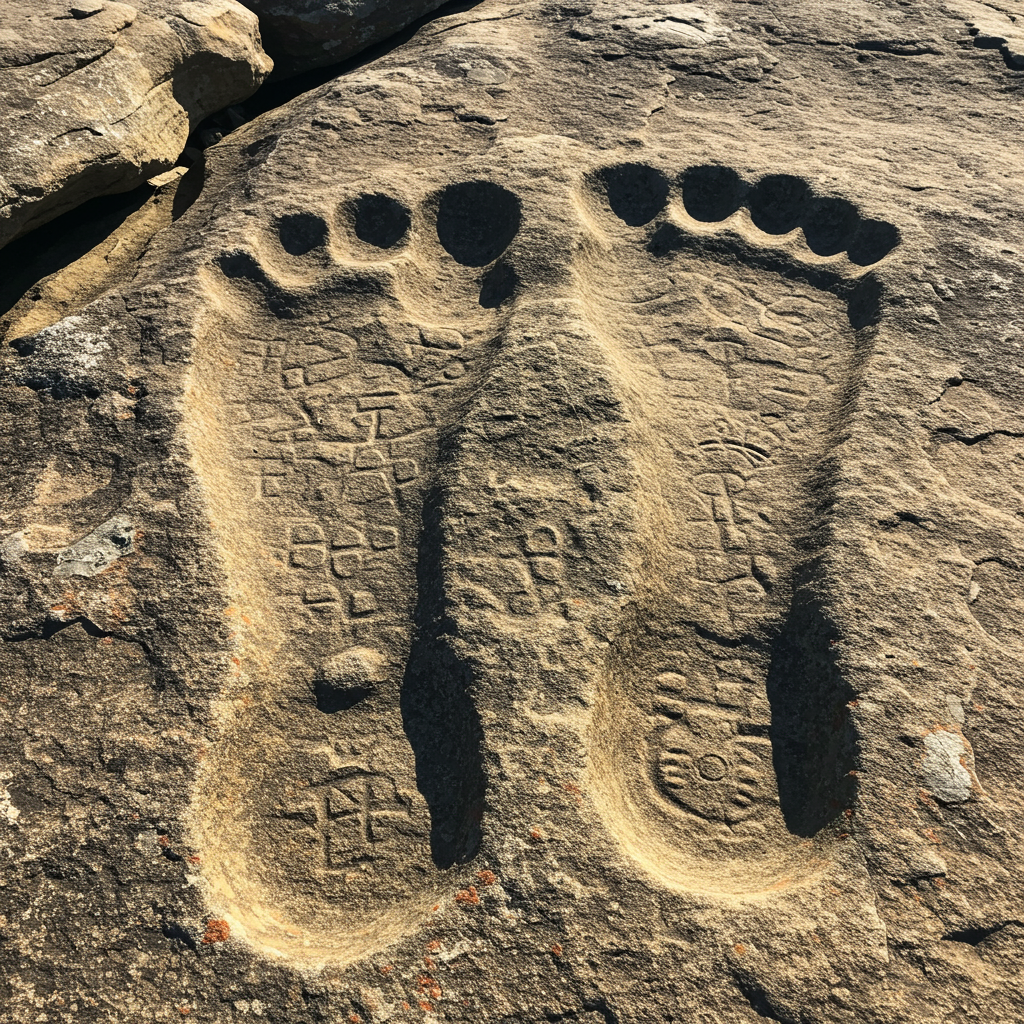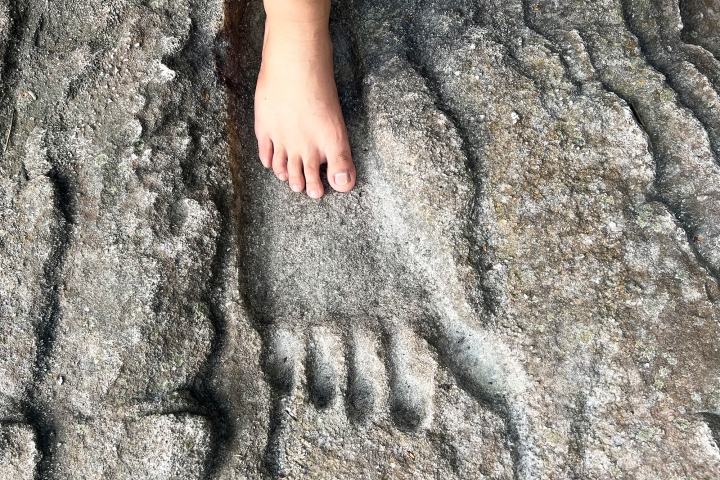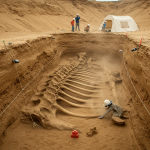Footprints of the Forgotten Beings?

In a remote and windswept landscape, embedded in ancient stone, lie a series of massive footprints unlike anything documented in conventional archaeology. Each impression is not only monumental in size but also marked with intricate symbols carved directly into the rock—symbols that defy the interpretations of mainstream historians. These engravings, far from random, appear deliberate and purposeful, hinting at a form of communication or record-keeping from a culture beyond our current understanding. The sheer precision and durability of these markings raise the possibility that they were created by an advanced civilization—or perhaps beings of extraordinary stature—whose existence has long been omitted from accepted history.

The implications of such evidence are staggering. If these footprints and accompanying carvings are genuine, they challenge the very timeline of human civilization, suggesting a level of sophistication and presence that predates known ancient cultures. Yet, instead of inspiring robust investigation, the site has been met with a conspicuous lack of official attention. Academics and institutions appear hesitant, either unwilling or unable to engage publicly with the findings. This vacuum of scholarly discourse has left room for independent researchers, enthusiasts, and skeptics to speculate freely, fueling theories of hidden histories and deliberate suppression of disruptive knowledge.

Beyond the question of who—or what—left these marks lies a deeper issue: why is such physical evidence not the subject of open and transparent inquiry? The silence surrounding these discoveries speaks volumes, casting doubt on the inclusivity of our historical record. If our past holds chapters we have yet to acknowledge, then these footprints may not just be relics—they could be a direct message from a forgotten epoch, urging us to reexamine the foundations of what we believe to be true. Perhaps the more important question is not whether giants or advanced beings existed, but why we are discouraged from even asking.











